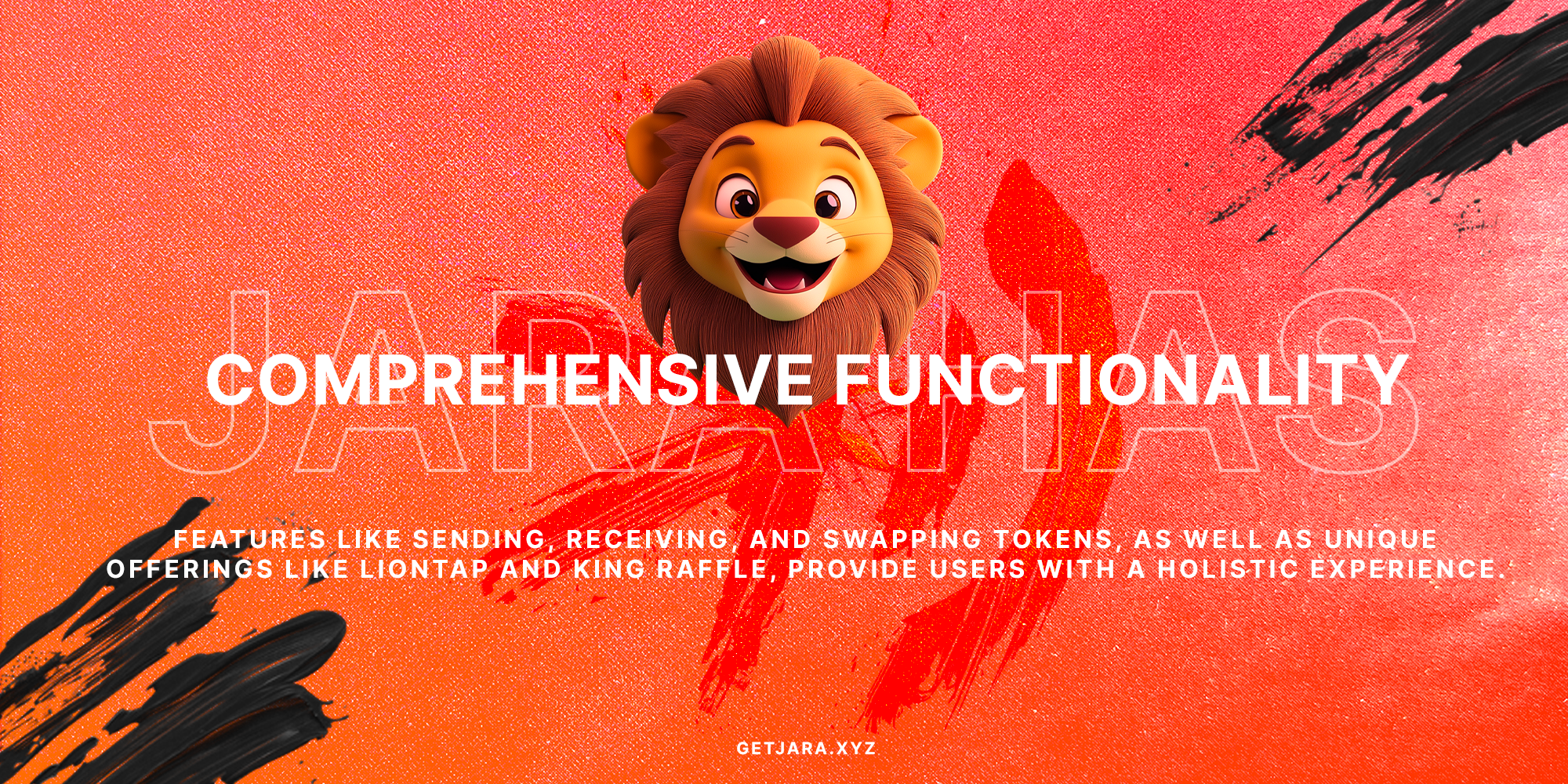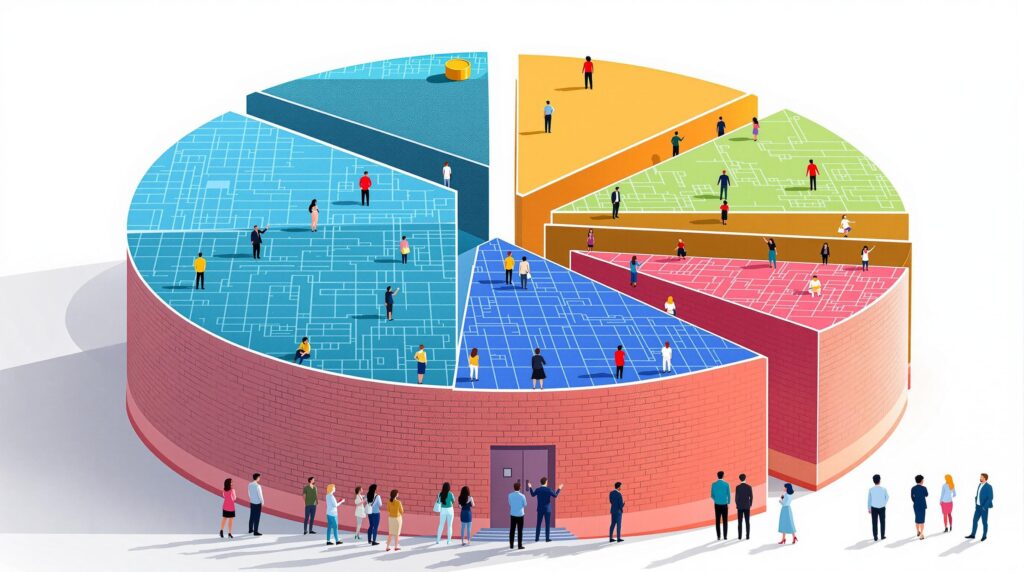Understanding Smart Contracts and Blockchain
In today’s fast-paced digital world, smart contracts are gaining significant attention for their ability to streamline processes and enhance security. But what exactly are they and how do they work in the realm of blockchain? Let’s dive in to understand the core essentials of these transformative technologies.
A smart contract is essentially a self-executing contract where the terms of the agreement are encoded directly into blockchain code. This removes the need for intermediaries, allowing transactions to occur automatically once set conditions are met. Smart contracts operate on a decentralized, immutable platform which provides increased transparency and trustworthiness.
What is a smart contract in blockchain? A smart contract is a self-executing digital contract with terms directly written into code and stored on a blockchain, ensuring high security and efficiency.
The blockchain itself plays a crucial role by serving as the foundation for these contracts. It offers a decentralized ledger that is secure and accessible, meaning all transactions logged on it are publicly viewable and unalterable. This eliminates the potential for fraud and errors often associated with manual contract management.
This technology is revolutionary, especially in regions such as Africa, where financial systems are rapidly evolving. Smart contracts offer a robust solution to the region’s financial barriers. By facilitating cross-border transactions and enabling access to international markets, platforms like Jara are leading the charge in embracing this technological shift.
“Jara- Unlocking the Future to Africa’s Crypto Ecosystem by transforming illiquid assets into global investment opportunities with transparency and trust.”
So, why are smart contracts considered a game-changer? At the heart of it lies their ability to foster trustless agreements. These are transactions that do not require parties to trust each other because the system itself ensures compliance with terms. This is achieved through the blockchain’s inherent characteristics of decentralization, transparency, and immutability.
Moreover, smart contracts significantly reduce the costs associated with traditional contracts by eliminating intermediaries such as banks or lawyers. They also accelerate the execution process, making them a fit for the fast-paced digital economy. With computational precision, they ensure that all terms are met before executing the contract, thereby reducing the risk of human error.
In the context of businesses, smart contracts can lead to newfound efficiencies. They automate numerous processes that would otherwise require manual interventions, saving time and resources. Industries that stand to benefit the most include finance, supply chains, and real estate, where the value of secure and quick transactions cannot be understated.
Jara’s impact on the African market is a prime example of this transformative power. By offering infrastructure that converts illiquid African assets into globally accessible digital tokens, Jara is providing a new perspective on investment opportunities within the continent. This approach not only bridges the gap in regional infrastructure but also offers financial inclusion, paving the way for a connected global economy driven by innovation in smart contracts.
As we move forward, understanding how smart contracts and blockchain function is not just about knowing a new technology, but about envisioning a future where traditional boundaries dissolve, opening up a world rich with possibilities. Are you ready to explore this cutting-edge domain and see how it could transform your interactions and business operations? The power of smart contracts beckons with the promise of a digitally empowered future.
Understanding Smart Contracts
Smart contracts are self-executing contracts where the terms of the agreement are written into code and stored across a blockchain network. But what does this mean for businesses? Imagine a world where contracts execute automatically without any intermediaries. That’s the promise of smart contracts—efficiency, transparency, and reliability, all embedded into lines of code.
“Smart contracts are revolutionary tools redefining trust and efficiency in the digital age.”
How Do Smart Contracts Work?
A smart contract operates through an automated six-step process:
- Agreement Creation: Parties agree on terms and conditions, deciding supervisory and executory roles of the contract.
- Programming the Contract: The agreed terms are coded into a smart contract, ensuring clear rules and consequences.
- Security Verification: A critical assessment of the contract’s security, given that a poorly designed contract poses risks.
- Deployment to Blockchain: The contract is uploaded to the blockchain, having permanence similar to transactions on platforms like Bitcoin or Ethereum.
- Monitoring Conditions: The blockchain network carefully monitors for predefined conditions before execution.
- Execution of the Contract: Upon met conditions, the contract self-executes, performing tasks like fund transfer or asset registration.
Benefits Over Traditional Contracts
The primary distinction between smart and traditional contracts lies in automation. While traditional contracts often necessitate third-party intervention for verification and enforcement, smart contracts eliminate the need for intermediaries. Benefits include:
- Cost Efficiency: Reduced need for intermediaries effectively lowers transaction costs.
- Operational Speed: Automating processes significantly increases speed and reduces manual errors.
- Security and Trust: Blockchain’s decentralized nature offers enhanced security and trust transparency.
Industries Leveraging Smart Contracts
Finance
In finance, smart contracts are elevating transactions by enhancing transparency and trust, paving the way for innovations in Decentralized Finance (DeFi). These digital agreements automate settlements, eliminate intermediaries, and mitigate fraud risk. For an insightful exploration, dive into our detailed discussion on DeFi.
Supply Chain
Supply chain management is often complex, but smart contracts streamline the entire process. By enabling real-time tracking on the blockchain, companies ensure product authenticity and transparency. For example, The Home Depot utilizes this technology to improve traceability across its logistics network.
Real Estate
The real estate sector benefits greatly from smart contracts. Tokenization—converting real estate assets into digital tokens—simplifies sales, increases transparency, and enhances security. Projects like Jara’s Lagos airport initiative demonstrate the transformative potential of blockchain in real estate.
Considering tokenization for your next real estate venture? Discover how Jara’s innovations are democratizing investment opportunities.
Insurance
Insurers leverage smart contracts to enhance claims processing by eliminating delays and reducing fraud. Automation ensures quicker settlements and trims administrative costs, which translates to improved customer satisfaction and trust.
The Future of Smart Contracts
Trends and Innovations
Automation: With increased blockchain adoption, sectors like transport and healthcare will likely automate complex procedural tasks using smart contracts.
Security Enhancements: As blockchain evolves, ensuring robust security to safeguard smart contract transactions remains a priority.
Adoption Challenges and Opportunities
Despite their advantages, widespread smart contract integration encounters challenges such as regulatory uncertainty and scalability concerns. However, advancements in blockchain infrastructure, as seen with Jara’s efforts, promise breakthroughs in these areas.
“Unlock the potential of blockchain with Jara—pioneering Africa’s digital transformation.”
Conclusion
Smart contracts are reshaping industries, providing a pathway toward a highly efficient, transparent, and secure future. With ongoing innovation, their role in the digital economy will only expand, paving the way for technologically driven solutions tailored for today’s challenges.

The Basics of Smart Contracts
Smart contracts are reshaping transactions by embedding trust directly into programming code. But what exactly are these contracts, and how do they work? A smart contract is a self-executing contract where the agreement’s terms are directly written into code and stored on a blockchain, allowing parties to exchange goods, services, or money without a middleman.
- Decentralization: This aspect removes the need for intermediaries, reducing costs and minimizing human error.
- Automation: Smart contracts are like digital “if-then” statements, automatically executing predefined actions when specific conditions are met.
- Efficiency: By automating processes, smart contracts free up resources and eliminate paperwork, fostering a more seamless workflow.
How Do Smart Contracts Work?
Smart contracts differentiate from traditional ones primarily by automating and enforcing transactions without intermediaries. Leveraging blockchain’s security and transparency, these contracts allow for trustless agreements, meaning the protocol itself assures compliance without requiring trust between parties.
“Trustless agreements are made possible through smart contracts, offering efficiency and security unmatched by traditional methods.”
Benefits Over Traditional Contracts
Why choose smart contracts over traditional ones?
- Speed: Automated processes ensure faster execution of contract terms.
- Cost-Effective: Eliminating intermediaries significantly reduces transaction costs.
- Accuracy: Reduced human intervention minimizes the risk of errors.
Automation Through Blockchain: Enhancing Efficiency
The blockchain revolution introduces unparalleled advantages to business processes through automation, accuracy, and security. In particular, smart contracts make businesses more efficient by accelerating processes and eliminating inefficiencies.
Use Cases of Smart Contracts in Various Industries
Finance: Enhancing Transparency and Efficiency
In finance, transparency and trust are fundamental. By embedding transaction terms into blockchain protocols, smart contracts execute transactions automatically, reducing risks and intermediate steps. They are central to the rise of decentralized finance (DeFi), a growing area in Africa’s digital economy.
Supply Chain: Improving Traceability and Security
The supply chain sector is evolving with smart contracts, which ensure reliable tracking and management of goods through each production and distribution stage, making legal and verified product lineages possible.
Real Estate: Facilitating Secure, Transparent Transactions
Smart contracts simplify real estate transactions, making buying and selling more straightforward and secure. Tokenization allows real estate assets to be converted into digital tokens on a blockchain, providing ease in trading and heightened transparency.
Insurance: Streamlining Claims and Reducing Fraud
The insurance industry benefits from smart contracts by automating claims processes, curbing fraud, and providing transparency to previously cumbersome systems.
The Future of Smart Contracts and Blockchain Integration
Predicted Trends: Automation and Efficiency
Automation driven by smart contracts will continue to revolutionize various sectors by offering increased efficiency and trust in transactions. This innovation aids companies looking to maintain a competitive edge in a tech-driven world.
Global Adoption: Challenges and Opportunities
While the potential for global adoption of smart contracts is vast, challenges like regulatory frameworks and scalability remain. However, with these challenges come opportunities for innovation and integration in diverse markets.
Global adoption of blockchain and smart contracts could redefine how businesses operate, bridging international divides and encouraging inclusivity.
Security Enhancements
Blockchain’s inherent security ensures trust in digital transactions, but continuous security advancements are vital, especially amid growing cyber threats.
Jara’s Vision for the Future
Jara is leading the charge in Africa by leveraging smart contracts to drive economic empowerment. By converting illiquid African assets into digital tokens, Jara opens unprecedented possibilities for local and global investors.
What Are Smart Contracts and How Do They Work?
In the digital age where efficiency and trust are paramount, smart contracts are emerging as a revolutionary tool in automating and securing transactions. But what exactly are smart contracts? These are self-executing contracts where the terms are directly written into code and stored on a blockchain. This innovative approach does away with traditional intermediaries like lawyers and notaries, automating the enforcement of contractual terms.
“Smart contracts leverage blockchain technology to create trustless systems where agreements execute themselves automatically.”
Mechanics of Smart Contracts
Imagine if traditional contracts functioned like a well-oiled machine—always reliable, tamper-proof, and immediately executable upon meeting the agreed conditions. Smart contracts operate on the blockchain, allowing them to execute automatically without human intervention. This protocol ensures that once conditions are met, actions such as transferring funds or exchanging assets occur seamlessly.
Benefits of Smart Contracts Over Traditional Contracts
- Automation: Removes the need for manual processing, saving time and reducing errors.
- Cost Efficiency: By eliminating intermediaries, smart contracts significantly cut down on transaction costs.
- Security: The decentralized nature of blockchain makes smart contracts highly secure against tampering and fraud.
- Transparency: All terms and executions are visible and traceable on a public ledger, ensuring both parties are informed.
Real-World Applications of Smart Contracts
| Industry | Application |
|---|---|
| Finance | Automatic fund transfers upon meeting terms, reducing processing times and errors. |
| Supply Chain | Improves traceability and verification of goods, enhancing transparency and reducing delays. |
| Real Estate | Tokenization of real assets, easing property trade without traditional paperwork. |
| Insurance | Streamlines processing of claims and reduces the incidence of fraud. |
How Smart Contracts are Reshaping African Markets
For regions like Africa, where financial systems are rapidly evolving, smart contracts offer a monumental transformation in how transactions occur. Platforms like Jara are spearheading the integration of these technologies to empower the continent’s digital asset economy. By removing barriers traditionally associated with cross-border transactions, Jara provides access to international markets and investment opportunities.
“Jara harnesses the power of smart contracts to transform Africa’s $200 billion digital asset economy, making it accessible to global investors.”
Jara’s Innovative Use of Smart Contracts
Consider the investment potential in tokenizing real estate projects. Jara, for example, streamlines this process through smart contracts, automatically allocating tokens once investment thresholds are met, thereby reducing what would traditionally be a cumbersome procedure involving multiple intermediaries.
Challenges and Future of Smart Contracts
Despite their vast potential, the widespread adoption of smart contracts isn’t without its hurdles. Regulatory frameworks and scalability issues remain a challenge. However, creating standardized protocols across industries promises a future where these obstacles can be surmounted.
Finally, as we venture further into the digital era, securing and maximizing the potential of smart contracts becomes ever more critical. With ongoing security enhancements, these innovations stand as a cornerstone for future business automation’s efficiency and trust.
Path Forward with Jara
Jara is actively participating in this evolution, investing in infrastructures and strategic partnerships to further the implementation of blockchain and smart contracts across the continent. By paving the way for secure and efficient transaction platforms, Jara is set to redefine African markets’ financial landscape.
“Jara – Unlocking the potential of Africa’s digital economy, bridging international capital to African assets through innovative smart contract solutions.”

What is a trustless agreement in blockchain?
Trustless agreements are transactions on a blockchain where no trust in a third party is required, as the blockchain’s technology ensures the agreement’s execution.
How do smart contracts ensure security?
Smart contracts ensure security by being encrypted and stored on a decentralized blockchain, which makes them tamper-proof and only executable when predefined conditions are met. This eliminates the risk of fraud and unauthorized modifications to the contract.
Can smart contracts be used in supply chains?
Yes, smart contracts can automate and enhance supply chain management by providing transparency, reducing manual errors, and ensuring faster transactions across the supply chain. They enable real-time tracking and verification of supply chain processes.
Are smart contracts legally binding?
Yes, smart contracts can be considered legally binding if they meet certain legal requirements such as clear terms and mutual consent. However, the enforceability of smart contracts depends on the jurisdiction and existing legislation surrounding digital agreements.

Related Practice Areas
Explore additional areas related to your interest in Smart Contracts and Automation.
Discover What Our Clients Are Saying
At the forefront of our Smart Contracts & Automation practice is a deep-seated commitment to client satisfaction. Each case is handled with utmost care, as echoed in the appreciative feedback from those we represent.

Unlock the Power of Automation with Jara
Embrace the future of contracts with Jara’s expertise in smart contracts and blockchain automation. Our team is passionate about helping you harness the benefits of trustless agreements, paving the way for seamless and efficient business operations. Ready to take the leap into the world of smart contracts? Contact us today to see how we can transform your business processes.
“Your Gateway to Innovation” – Let Jara guide you through the cutting-edge world of smart contracts and blockchain technology.
“Your Voice, Our Mission” – we champion your rights with the tenacity and dedication that have earned us the trust of our community members.
Understanding Smart Contracts
Smart contracts are a revolutionary technology in the blockchain ecosystem, functioning as self-executing contracts with the terms of the agreement being directly written into code. This allows for the automation of processes and transactions without the need for intermediaries.
KEY CONCEPT: Smart contracts automate processes, reducing the need for middlemen and enhancing trust in transactions.
Automation Through Blockchain Technology
The blockchain serves as the foundation for smart contracts. By leveraging this technology, contracts become trustless and transparent, leading to increased efficiency and reduced costs.
- Key Aspect 1: Transparency ensures all parties have access to the same information in real-time.
- Key Aspect 2: Automation minimizes human error and accelerates process execution.
- Key Aspect 3: Decentralization removes the need for a central authority.
Benefits of Trustless Agreements
Smart contracts offer several advantages, including improved transparency and security. This not only fosters trust between parties but also mitigates the risk of fraud.
| Benefit | Description |
|---|---|
| Security | Immutable records reduce the risk of tampering. |
| Cost Efficiency | Removes the need for intermediaries, thus cutting costs. |
| Efficiency | Automated processes lead to faster transactions. |
Our firm stands at the forefront of technology and law, empowering clients through innovative solutions like smart contracts.
Challenges in Smart Contract Adoption
Despite their benefits, the adoption of smart contracts is not without challenges. Issues such as scalability and legal recognition can pose obstacles for widespread utilization.
Scalability Issues
Scalability remains a significant concern as the blockchain networks can become congested, delaying transactions and increasing fees. Solutions such as layer-2 protocols are being explored to address these challenges.
Legal Considerations
As with any new technology, smart contracts face legal hurdles. Ensuring these contracts meet regulatory standards and are recognized in different jurisdictions is crucial for their broader acceptance.
Our expertise in navigating the intersection of law and technology makes us the ideal partner for businesses seeking to leverage smart contracts.

















